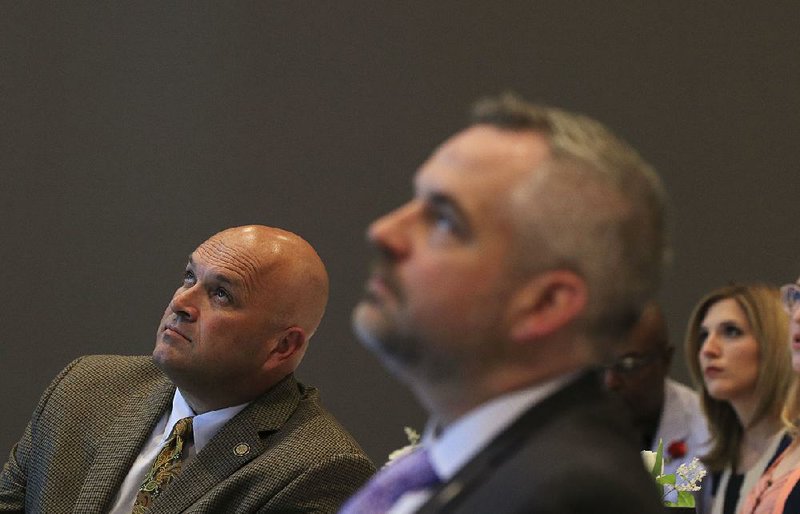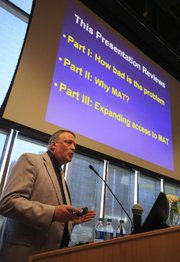Doctors who treat patients for opioid addiction can now get free phone advice from experts at the University of Arkansas for Medical Sciences, officials announced Friday.
On Monday, the university began offering a phone service providing one-on-one help on topics such as prescribing treatment medication, billing issues and connecting patients to other services.
Michael Mancino, director of the Center for Addiction Services at UAMS, said he can also interview a patient over the phone to help with a diagnosis.
Providers can use the service by calling (833) 872-7404 or (501)526-8459.
In August, UAMS will also begin weekly video conferences offering information on treating opioid addiction.
Both services, supported by $600,000 in federal funding from the state drug director's office, are aimed at increasing the number of doctors in the state who provide medication-assisted treatment for opioid addiction, Mancino said.
"In every corner of the state and in between, I want providers that people can drive down the street and go see their doc and get medication for their opioid use disorder," Mancino said.
About 85 physicians in the state have completed the eight-hour course required to prescribe buprenorphine from a doctor's office to treat opioid addiction, but only about 45 actually write such prescriptions, Mancino said.
Most doctors who have the certification have 30 or fewer patients in treatment, he said.
"We want to empower them to feel well-equipped to comprehensively treat this illness," he said.
Gene Shelby, who offers opioid abuse treatment from his clinic in Hot Springs, said he has patients who drive from El Dorado, Dardanelle and Maumelle.
"Some physicians really are not interested in those kinds of patients, because they can be difficult," he said.
Burdensome requirements to have the prescriptions approved by private insurers and the state Medicaid program also discourage some physicians, he said.
At a symposium at UAMS on opioid addiction Friday, Department of Human Services Director Cindy Gillespie said a shortage of substance abuse treatment providers keeps children in foster care from being reunited with their drug-addicted parents and keeps returning juvenile offenders to state lockups.
Changes that take effect July 1 will loosen some restrictions on Medicaid reimbursement for treatment, but that won't make any difference "if no one provides the service," she said.
"We just flat don't have the capacity we need in the state," she said.
Rick Tyler, medical director for a group of Baptist Health clinics, said the UAMS services will help.
"We know that opioid addiction is part of every primary care physician's practice whether they know it or acknowledge it, or whether they don't know it," he said.
Money for the phone service and video conferences is coming from a federal Substance Abuse and Mental Health Services Administration grant, awarded last year, that will provide $7.8 million for opioid treatment programs over two years.
Last month, UAMS announced that it will use $49,000 from that grant, along with $104,125 from Arkansas Blue Cross and Blue Shield, to provide a weekly online course on helping patients with chronic pain.
"They're two different pieces of the puzzle," State Drug Director Kirk Lane said.
Metro on 05/12/2018

